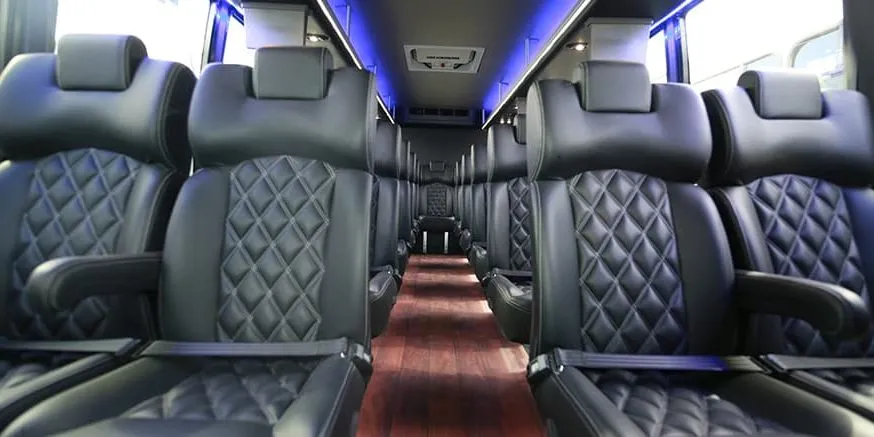Over the years, the travel industry has undergone an impressive transformation. Between enhanced security, mobile boarding passes and online check-in, airports are digitizing their processes. Additionally, with the incredible mobility we now enjoy through ride-sharing services and chartered vehicles, our world is crawling with possibilities for movement! We can now visit more places at a faster pace than ever before. The ten square blocks surrounding our homes no longer represent our “community” – the entire world does.
This modernization of travel is exciting and we’ve only just begun! Now, it’s time for travel businesses of all kinds to take advantage of the benefits technology offers to produce more efficient transportation services, generate greater revenue and create even more opportunities for people to connect. In this post, we’ll explore some of the ways custom software development can revolutionize transportation and travel.
Let’s begin with the customer’s experience.
1. Mobile Apps Create a Better Experience for Travelers
At this point, mobile apps are an integral first step in any digital transformation. For the travel industry, the importance of mobile applications cannot be overstated. For instance, American Airlines released its powerful mobile app several years ago. The app is nothing short of robust and streamlines the travel experience.
These are some of its many functionalities:
- Allows travelers to check-in for their flights hours before going to the airport
- Grants access to boarding passes directly on mobile devices
- Sends instant updates about flight delays, gate changes, and other information
- Provides airport maps and relevant connection information
- Allows travelers to order food on the go, directly from their smartphone
2. Software Development Empowers Transportation Businesses to Provide Better Customer Service through CRM
When it comes to creating efficient, positive experiences for customers, knowledge is definitely power! And, greater knowledge is made available by leveraging technology. Various platforms, including customer relationship management systems (CRMs), allow customer service representatives to learn all about the customer they’re assisting. From the date they purchased tickets and their intended destination to their unique travel preferences, CRM systems store this information for instant retrieval. Having this information handy allows customer service representatives to decide the best, most-effective way to help customers based on their specific circumstances.
Not only that, but customer service is no longer tied directly to the phone. Now, customers can reach out for help via messaging platforms on mobile applications and websites, as well as email. On the front end, a well-made CRM system also allows customers to receive assistance with inquiries without the need for human interaction (e.g. help to reschedule a previously booked ticket).
By implementing software that helps customers resolve their issues quickly, travel businesses solidify their customer relationships. This approach leads to more satisfied and loyal customers as time goes on.
3. Enterprise Resource Planning Supports Travel and Transportation Companies
When most businesses get started, they string together multiple systems for managing payroll, human resources, supply chains, and other processes. As soon as it’s financially reasonable, it is advisable to implement an ERP system that ties these systems together. An ERP system allows travel and transportation businesses to manage employee schedules, PTO and holidays, payroll, revenue reporting, and even vehicle/aircraft inventory and management.
Developing a custom ERP system is an ideal way for transportation businesses to create a solution that’s unique to their business needs with far greater security than using multiple, disparate systems.
4. Machine Learning and Predictive Analytics for Forecasting and Ticket Pricing
These days, manual pricing is practically prehistoric. Airline companies leverage Machine Learning and Predictive Analytics to produce dynamic prices that change in real-time, depending on demand and other variables. AirBnB, the leading homestay website, introduced its “smart pricing” algorithm to help rental owners automatically price their listings to achieve maximum bookings.
The concept of dynamic pricing can be applied to any travel and transportation business, from charter buses to passenger trains and beyond. As more data is collected by a company’s Predictive Analytics engine, the better – and more competitive – pricing becomes. For companies operating at this level, implementing a dynamic pricing engine can save time and money by replacing manual pricing and minimizing human error.
If your company is ready to make its business processes more efficient, custom software development is a wise investment. The 7T team is well-versed in developing robust digital transformation strategies (and the software that drives them forward) through a “business first, technology follows” approach. Whether your business is looking to implement a CRM system, ERP software, data lake creation tool or other innovative technology, 7T has the solution for you.
If it’s time to uncover hidden opportunities within your business, reach out to the 7T team today.










